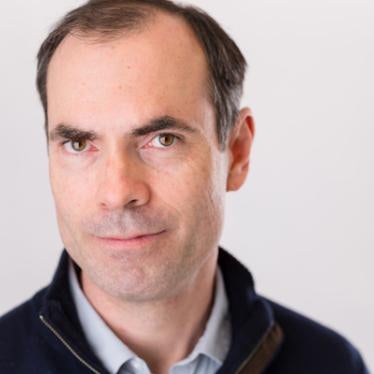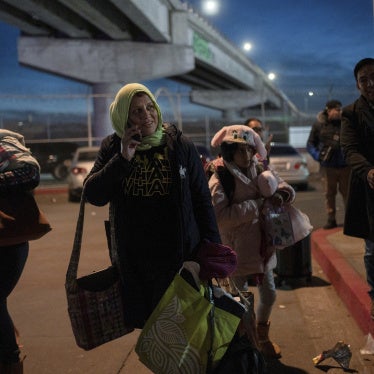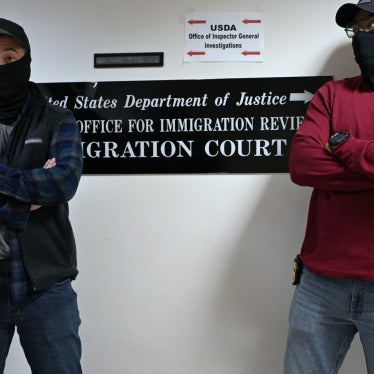President Barack Obama repeated in his state of the union address his longstanding promise “to keep working to shut down Guantanamo.” He should, and Congress should work with him to do that.
Guantanamo Bay has come to symbolize indefinite military detention without charge or trial. But the U.S. naval base has another sordid legacy that Obama should take every opportunity to repudiate: its use as a detention facility for asylum seekers. Australian Prime Minister Malcolm Turnbull’s visit to Washington, DC on January 18 and 19 is an occasion to do just that.
That’s because Australia’s own offshore detention of asylum seekers draws directly on the U.S. experience at Guantanamo in its earlier incarnation as a refugee camp.
Whether in the Pacific or at Guantanamo, offshore refugee detention is calculated to serve two underhanded purposes—to deter further arrivals of people who might be fleeing persecution and violence, and to create a law-free zone to evade legal scrutiny.
That sordid moment in U.S. immigration policy began when thousands of Haitians fled their county, many on boats bound for the United States, after a military coup deposed President Jean-Bertrand Aristide in September 1991. Fearing an influx in boat arrivals, U.S. authorities intensified a decade-old operation under which the U.S. Coast Guard routinely boarded Haitian-flagged vessels and detained the passengers and crew of any boat thought to be headed for the United States.
Under this “interdiction” operation, Haitians were screened in very brief, onboard interviews, without lawyers or adequate information, to determine if they had refugee claims. Those who passed the screening were supposed to be transferred to the United States to seek asylum, but just a few dozen were until litigation compelled the United States to admit about 10,000 Haitians who had been “screened in.”
But several hundred men, women, and children who had passed these “credible fear” screenings were not sent to the United States. These Haitians were HIV positive, and for that reason alone the United States held them for two years at Guantanamo before admitting them to the mainland as part of a legal settlement.
Even after their departure in 1993, Guantanamo has continued to serve as an offshore detention center to the present day, mostly housing Haitian and Cuban asylum seekers, where they remain in indefinite detention.
Australia has taken Guantanamo as its model, and doubled down.
The Australian government has made immigration detention mandatory for all asylum seekers who arrive by boat. Under policies in effect between 2001 and 2008 and again since 2012, these asylum seekers are forcibly transferred to “processing centers” in the countries of Nauru and Papua New Guinea. And since mid-2013, Australia has insisted that all those who establish that they are refugees will be resettled in one of those countries or a third country, not Australia.
At the end of December, Australia held some 900 asylum seekers on Manus Island, in Papua New Guinea, and 500, including 68 children, in Nauru.
When I visited Manus Island in 2013 on behalf of Amnesty International, I saw people in despair. Many had escaped armed conflict in Afghanistan, Darfur, Syria, and elsewhere; others had fled relentless persecution because of their religion or ethnicity. They worried about what would happen to them if they were resettled in Papua New Guinea, particularly because detention center guards repeatedly told them that they had to be locked up for their own safety.
Worst of all, asylum seekers reported, was the uncertainty they faced. “The main problem here is that they are keeping us in limbo,” a 28-year-old Iranian told me.
Mandatory offshore detention is particularly abusive for children. As reports by the Australian Human Rights Commission and other bodies have found, these children are locked up for long periods of time, sometimes sharing facilities with unrelated adults. Education is irregular, primary health care is inadequate, and mental health services are insufficient, among other shortcomings. Self-harm and thoughts of suicide are far too common.
Obama emphasized “the power of our example” in his State of the Union. That means calling out abusive practices whether they persist at home or are adopted abroad.









